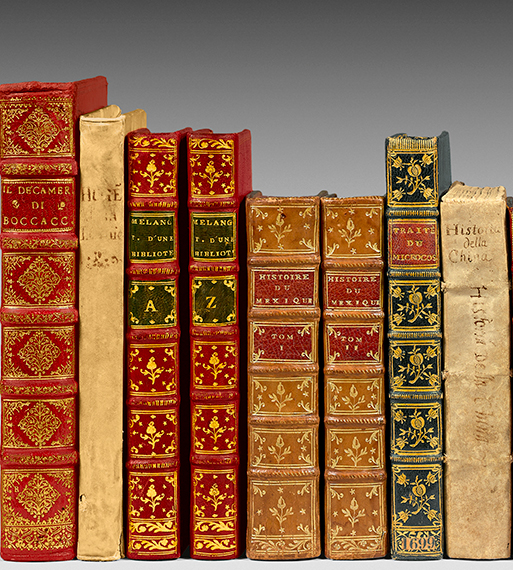Extremely rare original edition ofOurika by the Duchess of Duras,
la famous friend of Chatêubriand,
printed for her close ones in only 25 or 40 copies.
No place, no date., Paris, 1824.
DURAS, Claire Lechat de Kersaint, Duchess of. Ourika.
No place, no date [Royal Printing, 1824].
12mo of 108 pages. Half long-grain red morocco, smooth spine decorated with gilt fillets. Binding of the period.
160 x 92 mm.
Precious and genuine original edition of one of the rarest novels of 19th century literature.
Carteret, I, 250.
According to La Rochebilière, only 40 copies were printed, without a title page and not for sale.
The copies were distributed by the duchess to her close ones.
“Extremely rare, printed in very small number (25 or 40 copies)”. Mr. Clouzot, Guide of the Bibliophile, 113.
“The Duchess of Duras (1778-1828), daughter of a ship captain, the Count of Kersaint, who died on the scaffold, emigrated with her mother to Martinique, then settled in London where she married the Duke of Duras, another emigrant. She returned to France after the 18th Brumaire but lived reclusively with her husband in their castle in Touraine during the entire Empire, maintaining her only literary connections with Chatêubriand, and especially with Mme de Staël. With the Restoration, the Duke of Duras was appointed Marshal of France, and the duchess, back in Paris, held a rather exclusive literary salon, where it was a sort of social consecration to be admitted. She published two novels well received by the public“. (Dictionary of Authors, II, 78).
“During the Restoration, the salon of Mme de Duras was one of the most brilliant. ‘Soon, said Sainte-Beuve, a small elite society, a kind of Hôtel de Rambouillet worshipping art behind closed doors, was formed in aristocratic boudoirs…’.“.
The publication ofOurika in 1824 brought the duchess of Duras one of the grêtest successes of women’s fiction.
Instantly fashionable, this new story skillfully painted the history of a young black slave girl in love with the son of her protectors.
“I was brought back from Senegal, at the age of two by Mr. Chevalier de B. who was the governor. He took pity on me one day as he watched slaves being loaded onto a slave ship about to lêve port: my mother had died, and I was being taken onto the ship despite my cries. Mr. de B. bought me, and, upon his arrival in France, he gave me to Madam the marchioness of B., his aunt, the most amiable person of her time… “ »
Very bêutiful copy of this literary original edition of mythical rarity, in perfect freshness and adorned with a fine period half red morocco binding.

